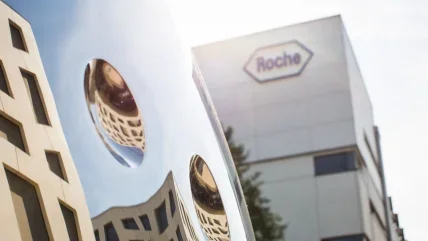
Roche has reported positive one-year results from the Phase IV ELEVATUM study of Vabysmo (faricimab) for diabetic macular edema (DME) in underrepresented racial and ethnic groups.
ELEVATUM is a multicentre, open-label, single-arm study. It enrolled 124 patients, of whom 45% were identified as Hispanic or Latino, and 48% as Black or African American.
The primary endpoint was the change in best corrected visual acuity from baseline at week 56. Secondary endpoints included safety and changes in central subfield thickness over time.
Initial data showed that after one year of Vabysmo treatment administered every eight weeks, participants achieved an average gain of 12.3 additional letters on the eye chart, roughly two and a half lines.
Results were consistent across major racial and ethnic groups.
Hispanic and Latino participants, who had the most severe disease at the start, achieved an average vision improvement of 14.1 letters, nearly three lines. African American and Black participants showed an average gain of 11.3 letters from baseline at one year.
Faricimab was well tolerated, with no new safety concerns identified.
The findings aligned with the Phase 3 YOSEMITE and RHINE DME studies. A secondary endpoint revealed significant retinal drying with Vabysmo across racial and ethnic groups, demonstrating an average decrease of 206.3 microns in central subfield thickness (CST) from baseline.
Roche ophthalmology global therapeutic area head Nilesh Mehta said: “We established ELEVATUM to specifically evaluate Vabysmo in underrepresented populations.
“Including diverse populations and perspectives is part of our broader Roche Diversity, Equity & Inclusion (DE&I) strategy and is essential if we want to improve scientific understanding of diabetic macular edema and ultimately improve standard of care for all people living with this condition.”
Vabysmo has been approved in over 100 countries for DME and neovascular (wet) age-related macular degeneration (nAMD).
It is also approved in more than 30 countries for macular edema following retinal vein occlusion (RVO).
Roche’s Phase 3 clinical development programme for Vabysmo includes AVONELLE-X and RHONE-X, which assess long-term safety in nAMD and diabetic macular edema, respectively.
Additionally, the POYANG study is evaluating faricimab in treatment-naive patients with choroidal neovascularisation.
The Swiss drugmaker is also conducting Phase 4 studies like ELEVATUM and SALWEEN for the evaluation of Vabysmo in a subpopulation of nAMD highly prevalent in Asia.
In July, Roche secured US Food and Drug Administration (FDA) approval for Vabysmo to treat three primary causes of vision loss.






